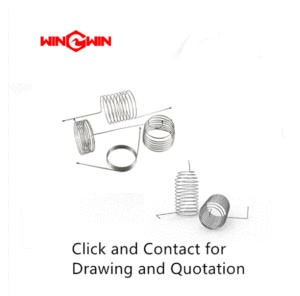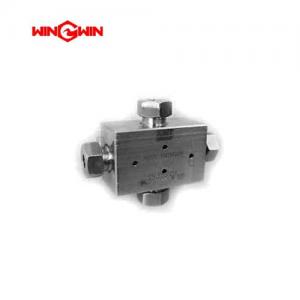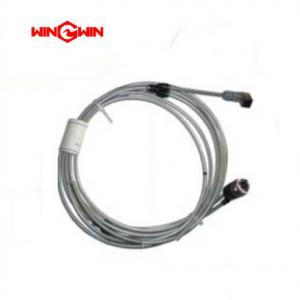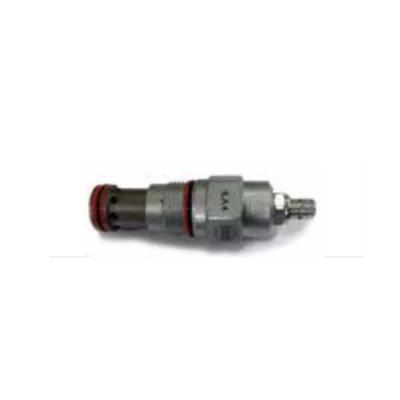REPLACEMENT Robotic Waterjet parts Coil M20-M-2CT
Robotic Waterjet parts Coil M20-M-2CT Description
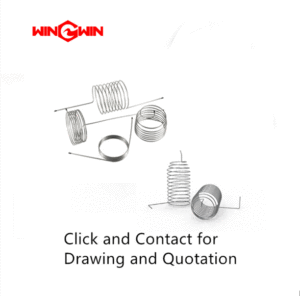
Item number:M20-M-2CT
Details: Robotic Waterjet parts Coil M20-M-2CT used on Fanuc M20IA Axis 2 robot waterjet cutting system
Consumables and usage costs of robotic waterjet machine
The cost of using a water jet mainly consists of electricity, water, garnet, gemstone nozzles, sand pipes and other consumables. The consumption of consumables depends on the user's degree of protection of the waterjet. The normal average is 6.84$ per hour. This is the average cost of all losses of the waterjet after deducting labor costs.
Robotic waterjet machines, like other waterjet cutting systems, have consumables and usage costs that contribute to the overall cost of operation. These costs can vary depending on factors such as the type of robotic system, the materials being cut, and the operating conditions.
Here are some of the key consumables and their associated usage costs:
Abrasive Material:
Usage: In abrasive waterjet cutting, abrasive material is often used to enhance cutting efficiency, particularly for hard materials like metal and stone. The abrasive is mixed with the waterjet stream during cutting.
Cost: The cost of abrasive material depends on the type used and the amount consumed during cutting.
Nozzles and Orifices:
Usage: Nozzles and orifices are essential components in the waterjet cutting head. They experience wear and need periodic replacement to maintain cutting quality.
Cost: The cost of nozzles and orifices depends on the type, size, and frequency of replacement required for the specific robotic waterjet system.
High-Pressure Tubing:
Usage: High-pressure tubing is used to convey the waterjet stream from the pump to the cutting head. Over time, it may wear out and require replacement.
Cost: The cost of high-pressure tubing varies based on the material and size required.
Filters and Abrasive Removal Systems:
Usage: Robotic waterjet systems are equipped with filters and abrasive removal systems to maintain water quality and remove spent abrasive. These filters require maintenance and occasional replacement.
Cost: The cost of filters and replacement components depends on the system and the frequency of maintenance.
O-Rings and Seals:
Usage: O-rings and seals are used in various parts of the waterjet system to prevent water and abrasive leakage. They can wear out and require replacement.
Cost: The cost of O-rings and seals depends on the type and quantity required.
Pump Parts:
Usage: Waterjet pumps, which are part of the robotic waterjet system, have internal components that require maintenance and eventual replacement to ensure the pump's longevity and performance.
Cost: The cost of pump parts varies based on the specific components that need replacement.
Energy Costs:
Usage: Robotic waterjet systems consume electricity to power the pump, high-pressure intensifier, and robotic components.
Cost: Energy costs depend on the power consumption of the equipment, the cost of electricity in the region, and the number of hours the machine is in operation.
Maintenance and Servicing:
Usage: Regular maintenance and servicing are necessary to keep the robotic waterjet system in optimal condition.
Cost: Maintenance costs include labor, replacement parts, and servicing by technicians.
Operator Labor:
Usage: Skilled operators are required to operate and maintain the robotic waterjet equipment.
Cost: Operator labor costs are associated with the wages and benefits of the operators.
Water Consumption:
Usage: Robotic waterjet systems use water for the cutting process. The water supply is part of the operational cost.
Cost: The cost of water consumption depends on local water rates and the volume of water used during cutting.
The usage costs of robotic waterjet cutting equipment can vary significantly based on factors such as the type of materials being cut, the frequency of use, the efficiency of the robotic system, and local operating costs. Regular maintenance, operator training, and efficient programming of robotic movements can help minimize costs and optimize system performance.
If you are looking for robot waterjet cutting system suppliers or Robotic Water jet Coils suppliers, as well as waterjet technical support needs related to water cutting, please feel free to contact us, we can provide free online support for you.
 wwaterjet
wwaterjet 